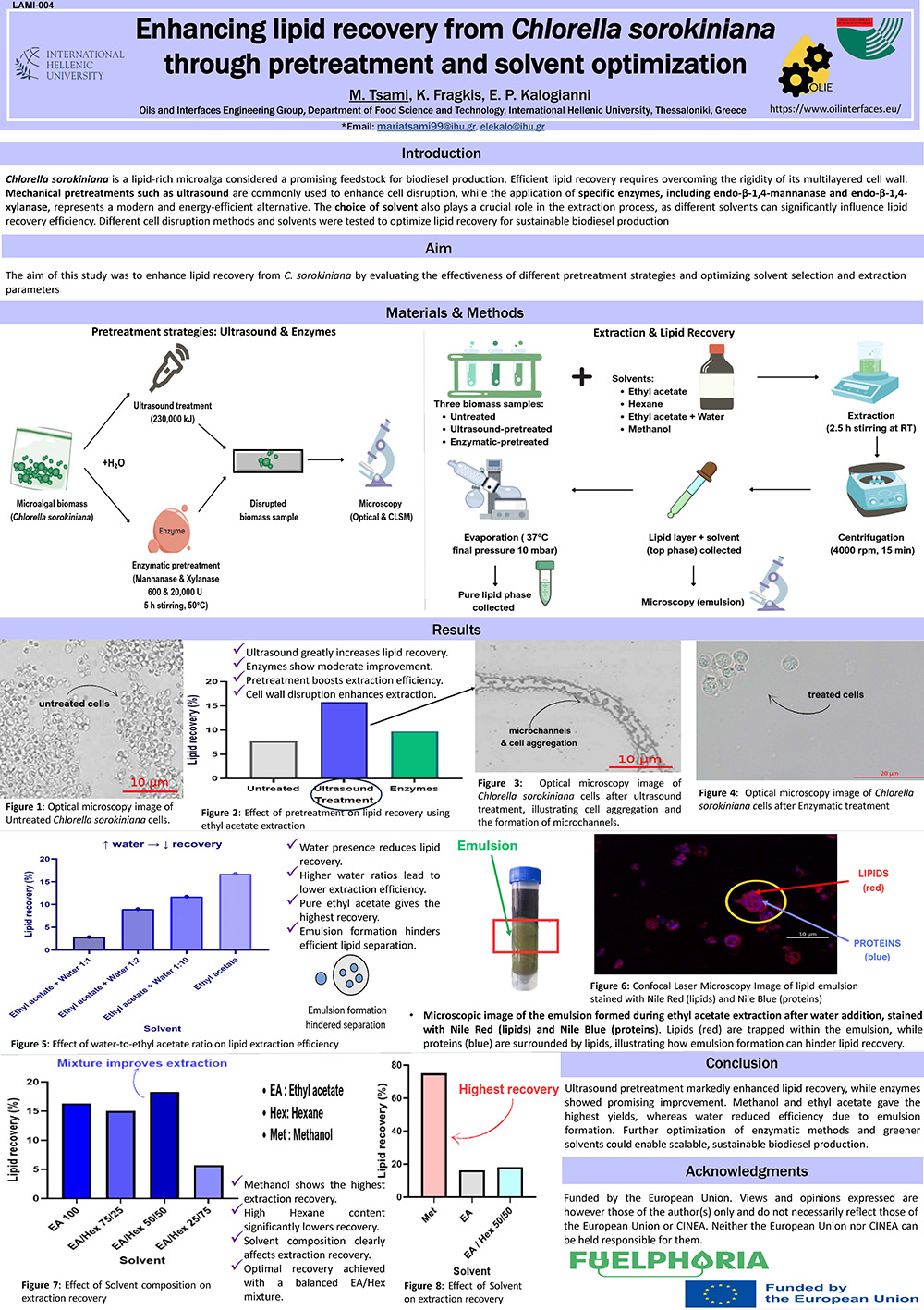Chlorella sorokiniana is a lipid-rich microalga considered a promising feedstock for biodiesel production. Efficient lipid recovery requires overcoming the rigidity of its multilayered cell wall. Mechanical pretreatments such as ultrasound are commonly used to enhance cell disruption, while the application of specific enzymes, including endo-β-1,4-mannanase and endo-β-1,4- xylanase, represents a modern and energy-efficient alternative. The choice of solvent also plays a crucial role in the extraction process, as different solvents can significantly influence lipid recovery efficiency. Different cell disruption methods and solvents were tested to optimize lipid recovery for sustainable biodiesel production.
